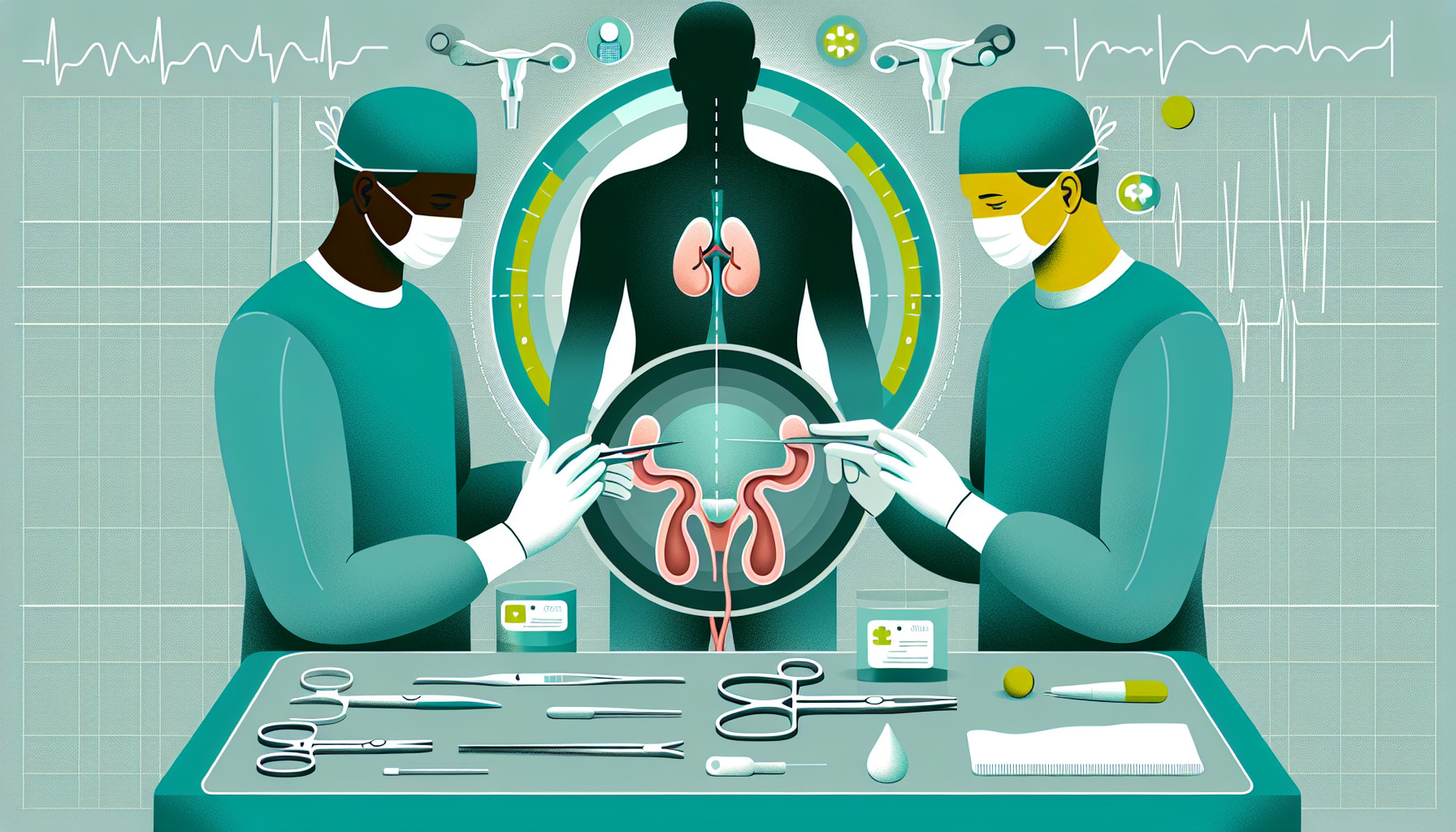Our Summary
The study looked at the effects of two types of nutrition given to patients after they have had a bladder removal surgery (cystectomy). One type of nutrition is given directly into the gut (early enteral nutrition or EEN), and the other is given through an IV line into a vein (total parenteral nutrition or TPN). The researchers looked at the outcomes of 556 patients from five different studies. They found that patients given EEN had fewer complications overall, and specifically, fewer infections compared to those given TPN. EEN was also cheaper, saving between €614 to €3120 per patient. However, there was no difference in the death rate, the occurrence of a common post-surgery digestive problem (ileus), the length of hospital stay, or the time it took for patients to start eating normally again. So, EEN seems to be a better option in terms of reducing complications and costs after bladder removal surgery.
FAQs
- What are the two types of nutrition given to patients after a cystectomy?
- What were the benefits of early enteral nutrition (EEN) compared to total parenteral nutrition (TPN) after a cystectomy?
- Was there any difference in the death rate, occurrence of ileus, length of hospital stay, or the time it took for patients to start eating normally between those given EEN and those given TPN after a cystectomy?
Doctor’s Tip
A doctor may advise a patient undergoing a cystectomy to consider early enteral nutrition (EEN) as it has been shown to lead to fewer complications and infections compared to total parenteral nutrition (TPN). EEN may also be more cost-effective, potentially saving the patient money. It is important to discuss nutrition options with your healthcare provider to determine the best plan for your recovery.
Suitable For
Patients who have undergone bladder removal surgery (cystectomy) are typically recommended for early enteral nutrition (EEN) or total parenteral nutrition (TPN) depending on their specific medical needs and condition. In this study, patients who received EEN had fewer complications and infections compared to those who received TPN. Therefore, patients who are at a higher risk for post-surgery complications or infections may be recommended for EEN. Additionally, patients who are looking to reduce costs associated with their post-surgery care may also benefit from EEN. Ultimately, the decision to recommend EEN or TPN will depend on the individual patient’s medical history, condition, and needs.
Timeline
Before cystectomy:
- Patients undergo various tests and evaluations to determine the need for bladder removal surgery
- Pre-operative counseling and preparation for surgery
- Surgery to remove the bladder (cystectomy)
After cystectomy:
- Recovery in the hospital, typically for 1-2 weeks
- Post-operative care including pain management, monitoring for complications, and rehabilitation
- Introduction of nutrition support, either EEN or TPN
- Monitoring of patient’s progress and healing
- Follow-up appointments and continued monitoring for long-term effects of surgery
Overall, the study suggests that patients who receive EEN after cystectomy have fewer complications and lower costs compared to those who receive TPN. However, there is no significant difference in other outcomes such as mortality rate, length of hospital stay, and time to resume normal eating habits.
What to Ask Your Doctor
- What are the potential complications of cystectomy surgery?
- What are the benefits and risks of receiving early enteral nutrition (EEN) versus total parenteral nutrition (TPN) after cystectomy?
- How soon after surgery will I be able to start receiving nutrition?
- Will I be able to resume eating normally after receiving EEN or TPN?
- How will receiving EEN or TPN affect my recovery time and overall outcomes?
- Are there any specific dietary restrictions or guidelines I should follow after cystectomy surgery?
- What other post-operative care measures should I be aware of?
- How will my nutritional needs be monitored and adjusted after cystectomy surgery?
- Are there any long-term implications or considerations related to receiving EEN or TPN after cystectomy?
- Are there any alternative nutrition options or supplements that may be beneficial for my recovery after cystectomy surgery?
Reference
Authors: Zeng S, Xue Y, Zhao J, Liu A, Zhang Z, Sun Y, Xu C. Journal: Int Urol Nephrol. 2019 Jan;51(1):1-7. doi: 10.1007/s11255-018-2031-6. Epub 2018 Nov 21. PMID: 30465143
